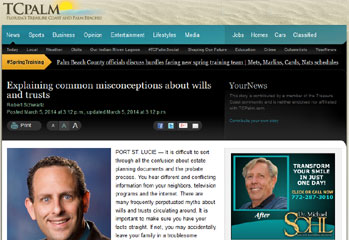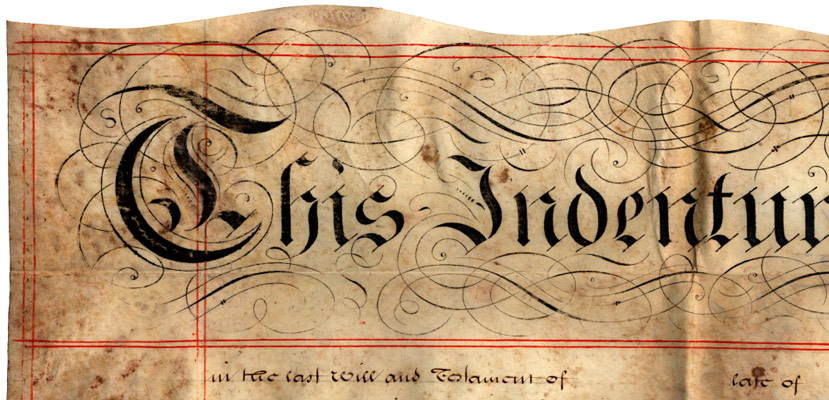Posts Tagged ‘Probate’
Estate Planning 101
Benefits of an Estate Plan The best estate plans are created by focusing on people, not just property. In its most basic terms estate planning is how your affairs will be managed in the event you are not around, either because of your death or incapacity. No one wants to think about their mortality but…
Read MoreEstate Planning 101
Benefits of an Estate Plan The best estate plans are created by focusing on people, not just property. In its most basic terms estate planning is how your affairs will be managed in the event you are not around, either because of your death or incapacity. No one wants to think about their mortality but…
Read MoreExploring Myths & Misconceptions About Wills and Trusts
As much as we try to simplify the process for you, it can be difficult to sort through all the confusion about estate planning documents and the probate process. In an article posted on TCPalm.com, Florida Trust Attorney Robert D. Schwartz provides an insightful explanation of common misconceptions about wills and trusts. According to Schwartz,…
Read MoreWill vs. Trust – A Comparison
When you begin to plan for the future disposition of your estate and assets, the first thing to decide is if you want to set up a will or a trust to guide that process. Compare Benefits of Will-Based vs. Trust-Based Plans There are benefits to both a will-based estate plan and a trust-based plan:…
Read MoreDefinition of Living Trust (Revocable Trust)
A living trust is the same as a revocable trust, a revocable living trust, and an inter vivos trust. Think of a trust as a third-party beneficiary contract where you have a trustmaker, grantor, settlor, or settlors who form a trust, basically as an agreement with a trustee party to provide for beneficiaries. Often when…
Read MoreDefinition of Living Trust (Revocable Trust)
A living trust is the same as a revocable trust, a revocable living trust, and an inter vivos trust. Think of a trust as a third-party beneficiary contract where you have a trustmaker, grantor, settlor, or settlors who form a trust, basically as an agreement with a trustee party to provide for beneficiaries. Often when…
Read MoreLiving Trust vs. Will
Should you have a living trust or a will? Benefits exist for both a will-based estate plan and a trust-based plan. From a cost standpoint, usually a trust-based plan – where the assets are truly coordinated with the trusts – are less expensive, but both kinds of plans do have expenses after death. Usually, a…
Read MoreTestamentary Trust Explained
A testamentary trust is set up by a will. The key is that testamentary trusts are given their life after a probate of a will. The will then funds those trusts, which are then deemed testamentary trusts. A testamentary trust is set-up by the testator (aka settlor, grantor, or trustor) through a will-based estate plan…
Read MoreArticle on Probate Definition of Family | Wills, Trusts & Estates Prof Blog
The UPC and statutes in all states provide default rules that direct the distribution of property when a person dies with probate property and without a will. The default rules–intestacy statutes–give the decedent’s property to members of the decedent’s family, following rigid relationship rules … Read more: Article on Probate Definition of Family | Wills, Trusts…
Read More




